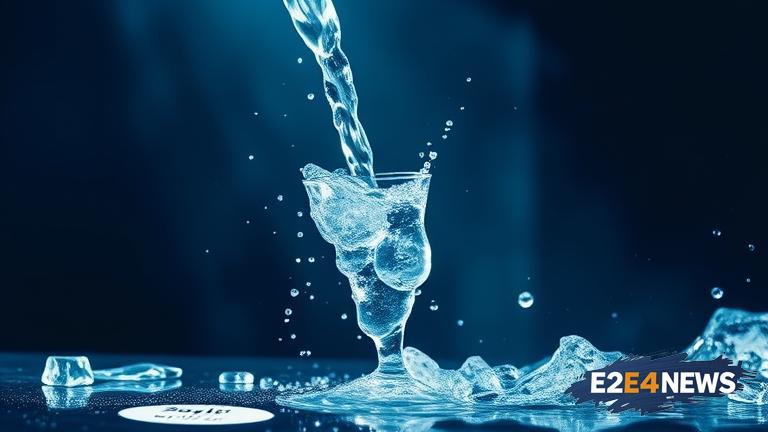Staying hydrated is essential for maintaining proper bodily functions, and recent studies have shed new light on the science behind optimal hydration. Research has shown that even mild dehydration can cause significant impairments in cognitive function, mood, and physical performance. In fact, a study published in the Journal of the International Society of Sports Nutrition found that dehydration can decrease athletic performance by up to 30%. Furthermore, dehydration has been linked to various health problems, including kidney stones, urinary tract infections, and even some types of cancer. On the other hand, proper hydration has been shown to have numerous benefits, including improved cognitive function, boosted energy levels, and enhanced athletic performance. But how much water should we be drinking? The answer is not as simple as it seems. While the traditional recommendation of eight glasses of water per day is still widely cited, recent research suggests that individual hydration needs can vary greatly depending on factors such as age, sex, weight, and activity level. For example, athletes and individuals who engage in strenuous physical activity may require more water to replenish lost fluids. Additionally, people who live in hot and humid climates may need to drink more water to account for increased fluid loss due to sweating. Moreover, certain medical conditions, such as diabetes and kidney disease, can also affect hydration needs. So, how can we ensure we are getting enough water? One way is to pay attention to our bodies’ thirst signals, which can be a reliable indicator of hydration needs. However, thirst is not always a perfect indicator, as some people may not feel thirsty even when they are dehydrated. Another approach is to monitor urine output, as pale yellow or clear urine can indicate proper hydration. It is also important to drink water regularly throughout the day, rather than consuming it all at once. Furthermore, incorporating hydrating foods, such as watermelon and cucumbers, into our diets can also help meet our hydration needs. In addition, avoiding sugary drinks and caffeine, which can act as diuretics and exacerbate dehydration, is also crucial. As research continues to uncover the complexities of hydration, it is clear that there is no one-size-fits-all approach to staying hydrated. Instead, it is essential to listen to our bodies and adjust our hydration habits accordingly. By prioritizing hydration and making informed choices about our water intake, we can optimize our health, performance, and overall well-being. In conclusion, the science of staying hydrated is complex and multifaceted, and there is still much to be learned. However, by staying up-to-date with the latest research and taking a personalized approach to hydration, we can unlock the secrets of optimal hydration and reap the many benefits that come with it. With the help of science, we can stay hydrated, perform at our best, and live healthier, happier lives. As the importance of hydration continues to gain recognition, it is essential to stay informed and adapt our habits to meet our individual needs. By doing so, we can ensure that we are getting the most out of our bodies and living life to the fullest. Ultimately, the key to optimal hydration is to be mindful of our bodies’ needs and to make informed choices about our water intake. By taking a proactive approach to hydration, we can take control of our health and well-being, and unlock the full potential of our bodies.
